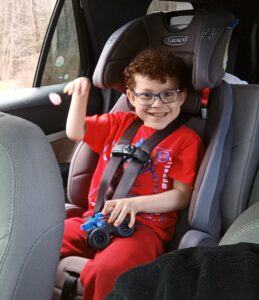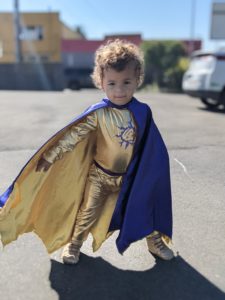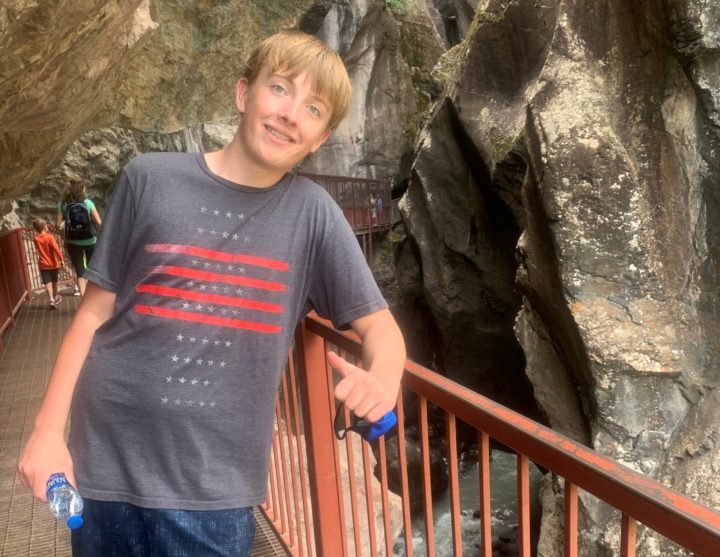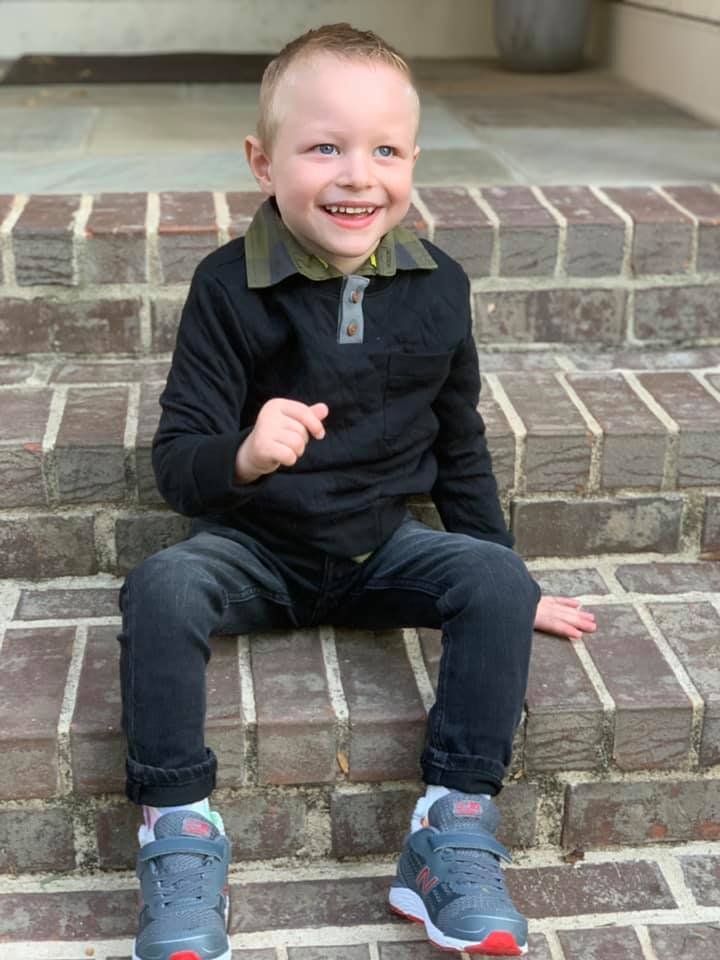Meet Amy — Perinatal Stroke
The phrase “I can’t” is something I was never allowed to say growing up. As an adult, I’m still not allowed to say it, even though my parents live hundreds of miles away. I had a stroke before I was born, which means I do not know life without a disability. At 3 months old, my parents noticed I was pulling in my right arm from the shoulder and knew this wasn’t normal. At 8 months old, I was holding my bottle with one hand. Shortly after, I received the hemiplegia diagnosis and started therapy.
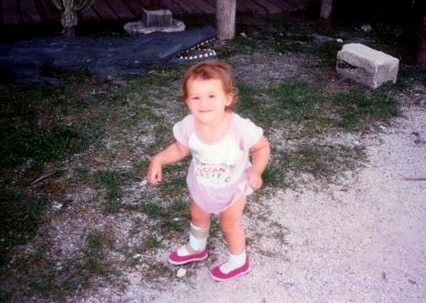
As a child growing up with right side hemiplegia (my right arm and leg are weaker than my left), you would think I was limited in many aspects of my life. I went to physical and occupational therapy twice a week from 8 months to 14 years old to get stronger. When I wasn’t there, I was getting extra tutoring to help me keep up with my classmates in school.
When I was 4 years old, I had surgery on my right foot because I was walking on my toes. When my leg was in a cast after the surgery, my physical therapist would give me sessions at daycare. Even with a bright pink cast, the therapist would have to stand for several minutes watching all of the kids in the playground to find me. From a young age, not even heavy plaster could stop me.
Shortly before turning 5 years old, my mother took me to a psychologist for a psycho-education evaluation at the request of my pediatric occupational therapist. These evaluations measure intelligence, achievement, personality, cognitive processing, and social and emotional development. After 3 days of testing, the evaluation stated my IQ was in the 21st percentile. The psychologist told my mother I would never be “mainstreamed” or be able to keep up with my peers. She should expect me to struggle in school and be placed in special education.
If you are wondering where the idea of outlawing “I can’t” came from, it was my parents. After hearing this advice, my mother promptly sought out a second opinion. I attended pre-kindergarten that fall with children studying the standard curriculum at my local elementary school. My parents did not tell the school in advance of my capabilities. When teachers called my mother after noticing the orthotic brace on my right foot or that I wasn’t using my right hand, she never used the terms “disabilities” or “special needs” when discussing these differences. By my parents not putting any sort of label on me, the teachers and my classmates learned to accept me as any another student.
Now, were my problems over? Of course not. Around 4th grade, I started to struggle with mathematics and began seeing a tutor. I would continue to have a math tutor through 11th grade. Instead of taking precalculus in 12th grade, I opted for AP Music Theory. Through this decision, I was an honor roll student both semesters of my senior year.
I would get discouraged with my physical limitations growing up. I have a typical brother who is a year and half younger than myself. Since we are so close in age, I would become jealous and competitive. My brother played baseball for most of his youth and I would watch from the sidelines thinking there was no way I could ever do that. As a child, I took ballet. When they started dancing en pointe, my parents switched me to tap dance and later jazz. I then played soccer when I was in elementary school. In high school, I discovered the perfect activities for people with hemiplegia – shotput and discus! I loved being able to play a sport where my
weakness had little impact on my ability to perform. I didn’t break records, but I was able to keep up with the competition.
Throughout my studies and extracurricular activities, I would have internal reminders telling me I was different or not good enough. While my grades were good, they were not great. As a child (and currently as an adult, if I’m being honest) I did not have a lot of patience and I was stubborn. I would have tantrums and yell the phrase “I CAN’T” over and over again out of frustration. My parents never accepted that as an excuse to not do something. They also knew if I wanted something bad enough, I would figure out a way to achieve it.
Thanks in large part to my parents, teachers, advocates, and mentors, that initial evaluation when I was 4 years old was not fulfilled. I have a driver’s license and drive a car with adaptive equipment on the steering wheel and pedals. I graduated from a prestigious private high school, went to college 4 hours away from home, and received a master’s degree from one of the best programs in the country. Today I work at a large international nonprofit, supporting teams across the United States and helping to raise millions of dollars each year.
Learning their first child was different from other kids was not easy for my parents. But, I think one of the biggest lessons they instilled in me was to never give up. Yes, my life started out a little differently from other children. Yes, it was not always as easy. However, I think my hemiplegia drove me to work twice as hard for what I want out of life. I recently relocated to a new state just because I wanted a change. No one questioned, “but, what about your disability?”. I did not grow up surrounded by people who tried to limit me.
If there is one thing I hope people take away from my story, it’s that there is a great, big, beautiful life after pediatric stroke. Saying “I can’t” only holds you back. Your goals are limited simply by what you put on yourself.
